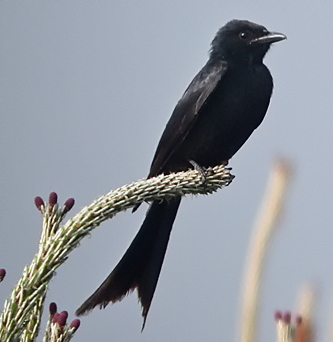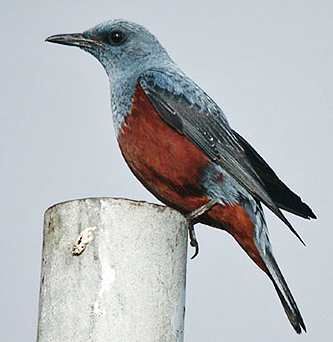 | E-mail to Birds Korea |
 | KWBS |
in the Region
 | The Oriental Bird Club |
 | BirdLife International (Asia) |
June
Often hot (temperatures up to 30°C inland) and humid, with very heavy rains some years by mid-month.
By early June, Yellow and the rare Schrenk's Bittern are breeding in reed-beds, and Watercock give their (slightly comical) gulping calls in the best rice-field areas. Nesting activity in Black-faced Spoonbill and Chinese Egret colonies reaches its peak, and forest nesters are still vocal, especially in the first half of the month. At Gwangneung, typical species include 4 species of woodpecker, Ruddy Kingfisher, Yellow-rumped Flycatcher and Mandarin Duck, while on the south coast at Geoje Island Pale Thrush, Blue-and-white Flycatcher and Yellow-throated Bunting predominate. Black Woodpigeon nest on Gageo and other islands and Styann's Grasshopper Warbler are widespread on small islets: both species, plus the very local Russet Sparrow, can be seen well on Ulleung Do.
(The following records are a compilation of our own sightings and records sent in by other observers. As well as being posted on the Birds Korea website(s), selected records are also forwarded to other Korean-language birding websites; records of threatened species are arranged and forwarded to Birdlife International and national authorities when appropriate; flag images and records are passed to bodies responsible for their coordination throughout the flyway; and all records sent to us are used to compile annual reports and to support the evolving understanding of the status of many of Korea’s birds.)
Geum Tidal Flats and Gunsan vicinity, June 26
"Eastern" Oystercatchers are wide spread and were seen all around the Geum.
By the airport a group of about 200 Grey Starlings were seen. Also there a single Hoopoe flew up and perched in a tree. A group of three Japanese Quails were flushed from a grassy edge of a road.
Gangwha Island, June 20
By the time I arrived at Dongmak, Robin had already glimpsed 1 of 3 Meadow Buntings and a Moorhen in the dry rice paddy. 14 Black-faced Spoonbill roosting on the distant island in the morning had dwindled to 3 by the afternoon. 2 "Eastern" Oystercatcher, ca.10 Great Cormorant, and up to 200 Far Eastern Curlews shared the mudflat.
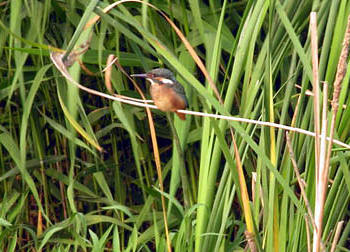
Nearby reeded areas held a Zitting Cisticola, plentiful Oriental Reed Warblers and a Black-capped Kingfisher. Other birds included 3 Grey Starlings, Black-naped Orioles, Common Cuckoos, a Hoopoe, Chinese Sparrowhawk and 2 Kestrels.
Plentiful deer slots apparent in a large area of overgrown swamp near the canal were highly likely to be those of Korean Water Deer (Hydropotes inermis argyropus).
Most welcome bird of the day for me was a pretty Common Kingfisher in lush riverside reeds: this bird seems reasonably common in suitable habitat on Gangwha.
Oh-seong Mountain, Geum Tidal Flats, Man-gyeong Estuary and Gunsan vicinity, June 19
A Common Kingfisher was in a canal near the Geum. By Oh-seong Mountain, Hobbieswere seen and a couple of Indian Cuckoos are still calling. Scaly Thrushes were heard there as well as seen well with a bill full of some kind of insect larva East of Eunpa Park.
On and over the tidal flats a couple of hundred Far-eastern Curlews were observed and numerous Common Terns*, Little Terns were the most numerous and a couple of Whiskered Terns were there, too. At Hwoe-hyun looking out over the Mangyeong tidal Flats a single Black-faced Spoonbill was feeding.
* Two varieties of Common Terns: some light and others were dark enough to make them difficult to tell from Whiskered Terns at distance, Lee, Koo and Park seems to be unclear about the names of these subspecies.
Seoul, June 18
A brief business trip back to Seoul gave hardly anytime for birding, however, a short walk around Namsan produced Common Cuckoo (1), another new Namsan species for me, Broad Billed Roller (3), Black-naped Oriole (1), Japanese Pygmy Woodpecker (1) and young Brown-eared Bulbuls asking to be fed.
Gwangneung National Arboretum, June 15
A June 15th visit to Gwangneung's National Arboretum yielded cloudy skies and thunderstorms, Grey-headed, Great Spotted, White-backed, and Pygmy Woodpeckers - and also, briefly heard, a probable Black Woodpecker's extremely powerful drumming.
Also in the woods: Eurasian Nuthatches and Jays, many Chipmunks. In more open areas: a beautiful pair of Mandarin Ducks in the stream and Black-naped Orioles and Common Cuckoos calling.
Namdong-gu, Incheon, June 12
A visit to my local wood produced good views of the usual (yet nonetheless delightful) summer birds: Grey-headed Woodpecker, several Black-naped Orioles, Common Cuckoo, Bull-headed Shrike and singing Blue and white Flycatcher. A Eurasian Hobby glided in amongst Barn Swallows in the distance, and a pair of Broad-billed Rollers roved high over the trees in their typical fashion.
Forest near Arboretum am, Ganghwa Island-Yeongjong pm, June 10
With rain starting to fall in the early hours and continuing until mid-afternoon, first bird of the day was a singing Indian Cuckoo, followed by excellent views both of a drake Mandarin Duck (one of 4 present), and of the same White-backed Woodpeckers of the previous day.
At Ganghwa, ca 25 Chinese Egret seen in total on southern tidal-flats, along with 2 Black-faced Spoonbill and ca 100 Far Eastern Curlew, while in fields and reedbeds 3 Yellow Bittern, 3 Black-capped Kingfisher, a trilling Ruddy Crake heard, and excellent views of a male Meadow Bunting.
The final stop was at the Yeongjong southern shorebird roost. Despite the high tide, no shorebirds at all noted, best by far being 25 breeding-plumaged Saunders's Gull.
Namhansan and forest near Arboretum, June 9
In very warm sunshine (with the temperature reaching ca 29 C), a good number and variety of singing cuckoo at Namhansan, with at least 2 Oriental, 5 Common, 3 Indian and 5 Hodgson's/Northern Hawk-cuckoo heard. Best seen there were clear flight views of a Northern Hawk-cuckoo, singing Yellow-rumped and Blue-and-White Flycatcher, singing Grey-backed Thrush (the two latter species both first-summer males), Brown Dipper, Yellow-throated Bunting (including well-grown birds of the year and attending adults), while the excellent run of mammal sightings included both Asian Chipmunk and a close Siberian Weasel..
Near the arboretum, 3 Long-billed Plover were watched being chased by a very agressive Little Ringed Plover, and in total ca 5 Mandarin Duck were seen well. Forest birds of note included 2 or 3 Brown Flycatcher (very scarce in South Korea in summer?), excellent views of a Brown Hawk Owl/Northern Boobook, and feeding families of both Great Spotted and White-backed Woodpeckers.
Seosan Lakes A and B, June 8
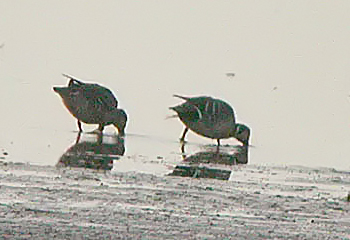
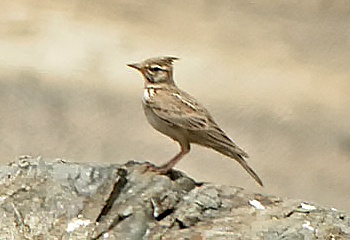
The rather hot, hazy and bright conditions (with a day maximum of ca 27 C) provided an odd setting for a surprisingly excellent mixed group of waterbirds at the top end of Lake A. Along with a couple of hundred Spotbilled Duck (ca 500 logged there during the day), 5 Garganey, one Eurasian Teal, 3 Eurasian Wigeon, 8 Falcated Duck, 15 Mallard, 10 Northern Pintail, 2 Tufted Duck, 3 Taiga-type Bean Goose, 5 Greater White-fronted Goose and no less than 5 Baikal Teal (with two pairs, and one extra male)!
These were also joined by ca 20 Black-winged Stilt, 90 Black-tailed Godwit, 30 Common Greenshank and several osculans Oystercatcher(with the 10 logged during the day including two fairly well-grown young)..
Other species of note at Lake A included 8 Mongolian Gull and 2 Crested Lark, with moment of the day (for NM at least) being provided by stunning views of an Amur Leopard Cat with kittens. On Lake B, now threatened by the development of yet another large-scale resort complex, best were a single male Watercock (JP only) and a male Shrenk's Bittern.
Eocheong Island AM-Geum River area, June 7
Largely overcast overnight, with a few spots of rain, clearing to bright and sunny conditions in the afternoon.
On Eocheong Island, now 3 Black Drongo and an extremely late Red-billed Starling, while Chinese Sparrowhawk increased to 15, Pacific Swift to 35, and Common Cuckoo to 5. Additionally, ca 8 Styann's/Pleske's Grasshopper Warbler were heard singing around the village.
Among the very few late migrants, one Asian House Martin, still the "invisible" Middendorff's and the "obliging" Yellow Bittern, and single late Arctic Warbler and simplex Japanese White-eye.
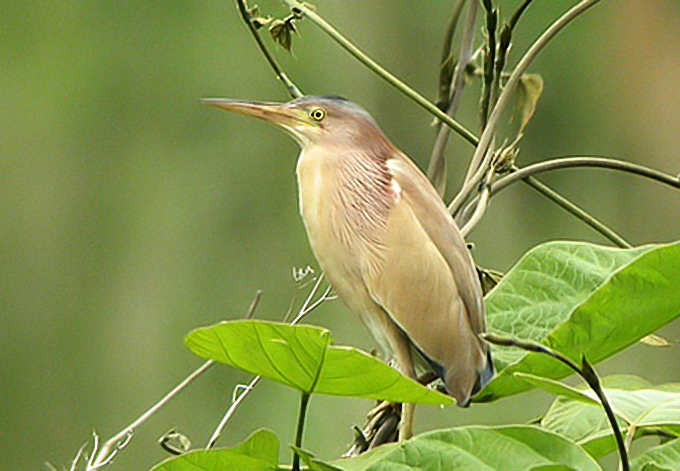
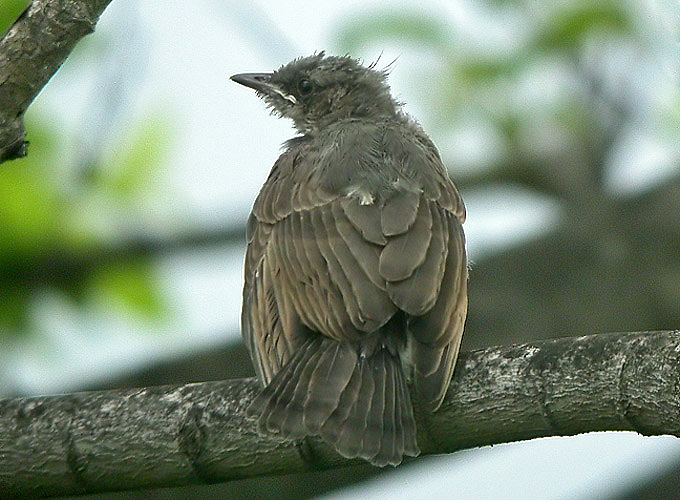
With much better viewing conditions, the ferry provided prolonged and reasonably close views of Ancient Murrelet (20), Streaked Shearwater (25) and Swinhoe's Storm Petrel (for this ferry crossing, a record 30 logged), along with 10-15 Finless Porpoise.
Back on the mainland late waterbirds included 130 Terek Sandpiper, single Dunlin, male Common Pochard and female Greater Scaup at the Geum barrage, while woodland held singing Indian Cuckoo (3), Asian Stubtail (1) and Pale Thrush, several Asian Azure-winged Magpie, and biggest surprise of all, a Rabbit/Hare, which based on a google search appeared best to match Manchurian Hare Lepus mandshuricus.
Seosan, June 6
The following Watercock photos are part of a stunning gallery taken by KIM Hyun Tae and featured on his excellent website at http://home.megapass.co.kr/~skua/. Both photos are used with permission.
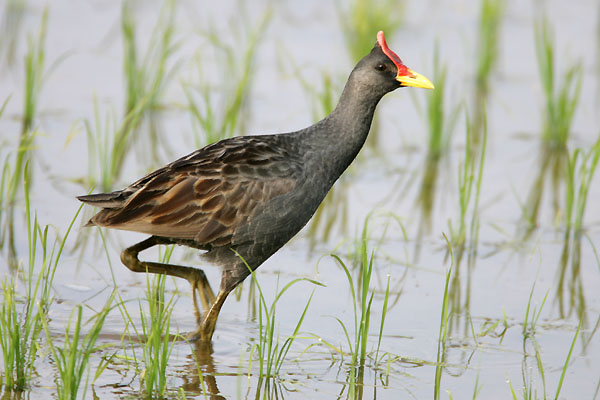
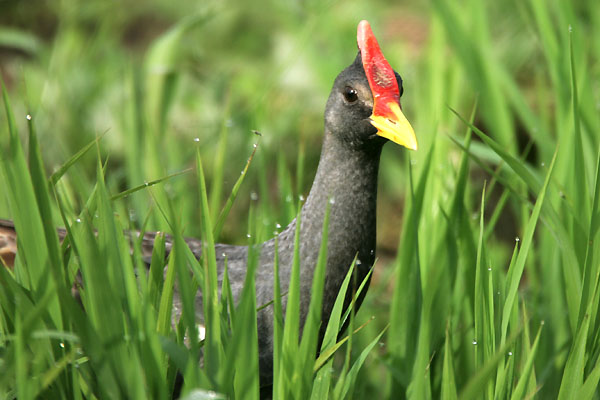
Geum Tidal Flats and Oh-seong Mt., June 6
The local breeders are well along. On a pond near Oh-seong Mt. a Little Grebe was feeding four young and two pairs of Moorhens each had four or five young. In a meadow near by a Japanese Bush Warbler was seen singing in a low tree.
At the Geum, a pair of Common Pochards (male and female) are lingering. Many Little Terns were seen as well as a single Whiskered Tern. Juvenile White Wagtails have started to appear. One large group of Black-tailed Godwits were feeding until a low flying plane buzzed the shore line and they took off.
Seosan "Area B", June 6
Very quiet (except for abundant and vocal Black Crowned Night and Grey Herons) and well-flooded rice fields. On the highways to and from: 2 Chinese Sparrowhawks, 1 Eurasian Hobby, 3 Broad-billed Rollers..
At Seosan, under slightly overcast, warm, windy conditions; small numbers of Kentish Plovers, 1 Red-necked Stint, and 1 Black-tailed Godwit. Great, Intermediate, Cattle, and Little Egrets. 1 Moorhen, 1 Grey Starling, abundant (and also vocal) Oriental Reed Warblers, 1 Common Greenshank, and 1Varied Tit..
Finally, in a cowfield near the Hyundai towers entrance, a single Peregrine Falcon feeding on a darkish bird (pigeon?).
Gunsan-Eocheong Island, June 6
With fog banks, viewing conditions on the ferry were a little difficult, but seabirds included ca 5 Streaked and one Slender-billed Shearwater, a Swinhoe's Strom Petrel (NM only) and 2 Ancient Murrelet.
On Eocheong, very few migrants indeed, but still 2 Black Drongo, a Yellow Bittern, single Chestnut-eared Bunting and Middendorff's Grasshopper and two (singing) Styann's/Pleske's Grasshopper Warblers, a Chinese Pond Heron, and highlight of the day a single Himalayan Swiftlet in with ca 20 Pacific Swifts.
Danyang-Gun, June 5
An adult pair of Mandarin Duck seen with at least 5 first year birds east of Gagok, Danyang-Gun
Saemangeum area, June 5
I went to Saemangeum on Sunday June 5 with KFEM people. We didn't see a lot of birds but there were a few good ones.
From the north arm of the dyke we saw Little Terns and Oystercatchers carrying fish towards the reclaimed land. I assume they are feeding young. On the tidal flats we could see Eurasian Curlews, Whimbrels, Oystercatchers, Black-tailed Gulls, Grey Herons and Spot-billed Ducks. We also saw a Kentish Plover (and possibly a Ruff in non breeding plumage).
From the southern side of Saemangeum we walk out to the salt marsh and saw 2 Black-tailed Godwits and a Common Redshank. In the rice paddies in the same area were 2 Wood Sandpipers, a flock of Cattle Egrets, Little Egrets and Great Egrets. Oriental Great Reed Warblers were in the long grass inside the embankment near the salt marsh.
It was also intereting to see a Barn Swallow's nest on the wall outside the restaurant where we had dinner. The nestlings were quite big and it took several attempts for one of the adults to get into the nest to roost after dinner.
Socheong Island, June 4
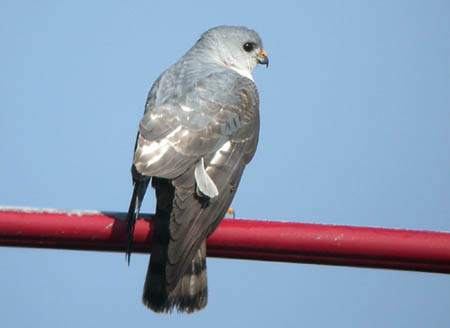
In the morning before the ferry back, only ca 40 species logged, with best for the day being still 3 Black Drongo, an adult Chinese Pond Heron, an Ancient Murrelet, a very late Chestnut-flanked White-eye, a Gray's Grasshopper Warbler (seen well), the Zitting Cisticola still and ca 4 Pechora Pipit..
In a little over an hour on the ferry, before fog 'returned', 11 Common Tern, only 5 Streaked Shearwater and 3 Ancient Murrelet.
Socheong Island, June 3
With overcast conditions, light northwesterly winds, and dense fog clearing in the mid-afternoon, a light flurry of late migration, with again close to 50 species logged.
Best for the day were 5 Black Drongo ( a new group arriving at midday), and a female Red Turtle Dove (considered new, as bird was clearly exhausted, and a female was also found the same day on Hong Island by Park Jong-Gil). Late migrants included Dusky (2), Radde's (1), Pallas's Leaf (2) and Two-barred Greenish (2) Warblers, a Zitting Cisticola and 2 Chestnut-flanked White-eye, while long-stayers included at least 4 Light-vented Bulbul still.
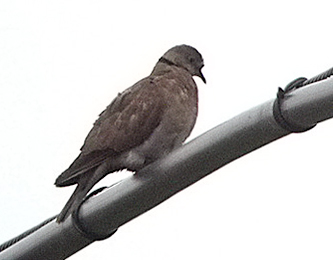
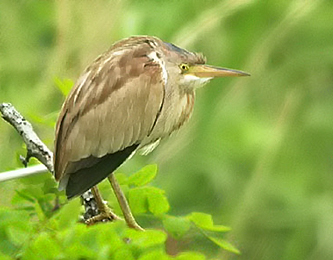
Socheong Island, June 2
Overcast and misty, with southerly winds swinging to the southwest. Although heavy rain was forecast, none fell. Only around 50 species logged, with most intriguing being 3 or more individuals thought likely to be bradypterus bush warblers, giving bursts of monotonous song from deep in cover.
Late migrants included 2 Thick-billed, 8 Black-browed Reed and 3 Pale-legged Leaf Warblers, while there were again 3 Black Drongo and 3 Chinese Pond Heron.
Socheong Island, June 1
Overcast in the morning, with around three hours of thundery showers in the afternoon. Very poor overall, with best for the day 2 Indian Cuckoo and 3 Black Drongo.
